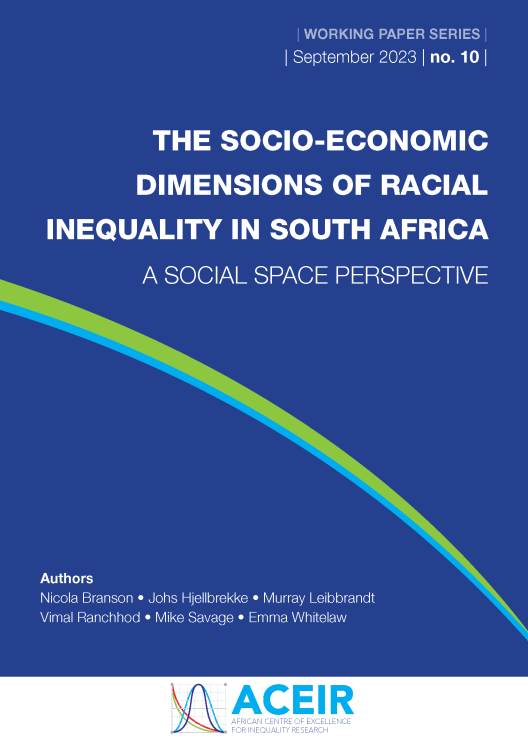The socio-economic dimensions of racial inequality in South Africa: A social space perspective
Nicola Branson, Johs Hjellbrekke, Murray Leibbrandt, Vimal Ranchhod, Mike Savage, Emma Whitelaw
ACEIR Working Paper no. 10, September 2023

It is well evidenced that South Africa is characterised by extreme economic inequality. To complement the extensive body of work on the dynamics of vulnerability and poverty alleviation, this study uses a sociological lens to investigate the structuring of privilege in South Africa. The analysis is a first attempt to systematically map how stocks of economic, cultural, and social capital intersect to generate systematic and structural inequalities in the country, and to consider how far these are associated with fundamental racial divides. To achieve this goal the authors draw on rich, nationally representative data from the National Income Dynamics Study and employ Geometric Data Analysis and Multiple Correspondence Analysis to construct a model of South African ‘social space’. Their findings reveal distinct features of South African social space: 1. the inheritor class reveals the intensely strong interplay between inequalities of economic and cultural capital; 2. there is some evidence that this homogeneity is associated with an enduring racialised divide; 3. the size of the upwardly mobile class indicates that forms of middle-class privilege percolate well beyond a core of the 8% of the population that is white, suggesting fluidity and change in the South African social space; and social capital is strongly delineated by age, with older respondents displaying on average higher levels of trust. The cluster analysis reveals that trust levels increase with economic and cultural capital levels within younger age groups and could, therefore, entrench social and racial divisions. Read more
